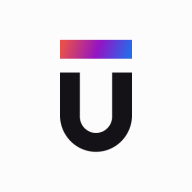


Prisma Cloud and Upwind are competing in the cloud security space. Prisma Cloud seems to have the upper hand due to its comprehensive feature set and integration capabilities, while Upwind offers targeted niche solutions and specific operational efficiencies.
Features: Prisma Cloud offers threat detection, compliance monitoring across multi-cloud environments, and comprehensive security features. Upwind provides network visibility, streamlined threat management, and features aimed at specific operational efficiencies. Prisma Cloud's extensive scope is ideal for enterprises needing an all-in-one approach, whereas Upwind caters to more specialized security requirements.
Ease of Deployment and Customer Service: Prisma Cloud integrates effortlessly with major cloud providers and provides extensive support through multiple channels. Upwind boasts a user-friendly deployment model suited for certain environments, accompanied by responsive customer service that effectively addresses niche inquiries. Prisma Cloud's wider support network offers confidence in complex setups, while Upwind's straightforward deployment and direct service benefit firms with clear-cut needs.
Pricing and ROI: Prisma Cloud involves higher initial costs but offers substantial ROI with its comprehensive offerings. Upwind provides a budget-friendly model with specific security enhancements giving promising ROI for those interested in niche capabilities. Prisma Cloud's larger investment aligns with its extensive applicability, whereas Upwind serves as a cost-efficient choice for targeted security advancements.
| Product | Market Share (%) |
|---|---|
| Prisma Cloud by Palo Alto Networks | 10.6% |
| SentinelOne Singularity Cloud Security | 3.1% |
| Upwind | 1.9% |
| Other | 84.4% |


| Company Size | Count |
|---|---|
| Small Business | 46 |
| Midsize Enterprise | 20 |
| Large Enterprise | 53 |
| Company Size | Count |
|---|---|
| Small Business | 37 |
| Midsize Enterprise | 20 |
| Large Enterprise | 55 |
SentinelOne Singularity Cloud Security offers a streamlined approach to cloud security with intuitive operation and strong integration capabilities for heightened threat detection and remediation efficiency.
Singularity Cloud Security stands out for its real-time detection and response, effectively minimizing detection and remediation timelines. Its automated remediation integrates smoothly with third-party tools enhancing operational efficiency. The comprehensive console ensures visibility and support for forensic investigations. Seamless platform integration and robust support for innovation are notable advantages. Areas for development include improved search functionality, affordability, better firewall capabilities for remote users, stable agents, comprehensive reporting, and efficient third-party integrations. Clarity in the interface, responsive support, and real-time alerting need enhancement, with a call for more automation and customization. Better scalability and cost-effective integration without compromising capabilities are desired.
What are SentinelOne Singularity Cloud Security's standout features?SentinelOne Singularity Cloud Security is deployed in industries needing robust cloud security posture management, endpoint protection, and threat hunting. Utilized frequently across AWS and Azure, it assists in monitoring, threat detection, and maintaining compliance in diverse environments while providing real-time alerts and recommendations for proactive threat management.
Prisma Cloud by Palo Alto Networks provides comprehensive cloud-native security solutions. It covers dynamic workload identity, automated forensics, and multi-cloud protection, ensuring robust security across diverse cloud platforms.
Prisma Cloud delivers advanced capabilities for managing cloud security across AWS, Azure, and GCP platforms. It offers dynamic workload identity creation, real-time monitoring, and seamless integration into CI/CD pipelines. With automation, centralized dashboards, and enhanced visibility, users effectively manage security misconfigurations and vulnerabilities. While optimizing cloud environments through runtime protection and compliance, Prisma Cloud faces challenges with its navigation, pricing, and limited automation capabilities. Users seek improvements in API security, role-based access controls, and documentation quality, emphasizing the need for enhanced customization and reporting features.
What are the important features of Prisma Cloud?
What benefits or ROI should users consider in reviews?
Industries like finance and telecom rely on Prisma Cloud for managing cloud security posture and container security. Teams utilize its capabilities across hybrid and multi-cloud settings to ensure compliance and robust threat protection. Features like misconfiguration detection and runtime monitoring are critical in promoting security objectives in these sectors.
Upwind is an innovative platform designed to enhance efficiency and streamline operations, offering a comprehensive set of features tailored to tech-savvy users. It supports seamless integration, ensuring that businesses can optimize their workflows with minimal disruption.
Upwind stands out by providing solutions that address complex business challenges, delivering value through enhanced functionality and ease of use. Its ability to integrate with existing systems empowers users to tailor the platform according to specific operational needs. Users benefit from Upwind's user-friendly design, which facilitates quick adoption and minimizes the learning curve. The platform's adaptability makes it a valuable tool for businesses looking to increase agility and remain competitive in a rapidly evolving market.
What are Upwind's most valuable features?Upwind is implemented across industries like finance, manufacturing, and retail, where it supports diverse operational needs such as compliance, inventory management, and customer engagement. Businesses leverage Upwind to improve data accuracy, procedural efficacy, and customer satisfaction, demonstrating its versatility and effectiveness.
We monitor all Container Security reviews to prevent fraudulent reviews and keep review quality high. We do not post reviews by company employees or direct competitors. We validate each review for authenticity via cross-reference with LinkedIn, and personal follow-up with the reviewer when necessary.